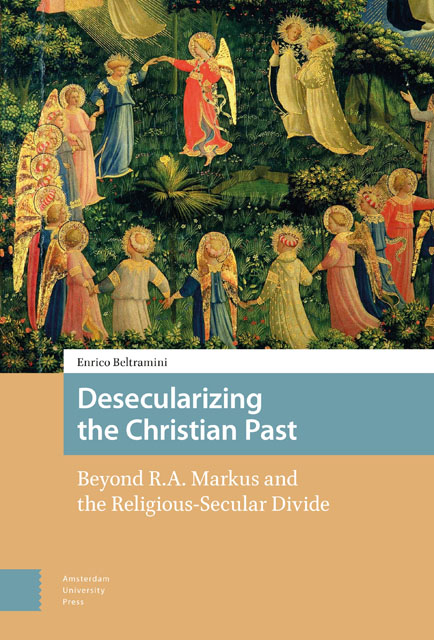5 - Ancient and Modern Christianity
Published online by Cambridge University Press: 18 November 2023
Summary
Introduction
In his Political Augustinianism, Bruno addressed at length Markus and the hermeneutical approach with which Markus adapted Augustine to the political problems of his time. More specifically, Bruno framed Markus's argument as internal to the shift “from the Modernist influenced, decontextualized ‘scientific’ study of Augustine” to a study of Augustine in the context of “the history and culture of Late Antiquity.” Bruno's interpretation of the ideology or system of ideas behind Markus's scholarship is indisputable; in fact, Markus himself validated Bruno's interpretation. Markus, however, was more than just an academic, and his ideology was not just related to the progress of his discipline. Markus was a fascinating man, as the sketch Peter Brown drew on his friend shows. Markus was a scholar but also a Catholic intellectual. He was a British academic born in Hungary. He was a Christian born as a Jew. If the search for Markus's deep ideology should be pursued, the evolution of his discipline is only one of the places that need investigation. The other is the Church herself. Markus decided to become a priest. Then he changed his mind. But those years spent at the very core of the Church of Pius XII may have left some mark on his view of the pre-conciliar Church. At least, this is the hypothesis tested in this chapter. When Markus made the civitas (and, by extension, the state) autonomous from the Church and neutral with regard to religion, he was not protecting the state from the invasive presence of the Church but defending the Church from her own temptation for political power. Arquilliere attempted to clear the Church of all theocratic pretensions to preserve her spiritual authority in the very moment in which her political power was vanishing. According to Bruno, Marrou believed that a proper Augustinian vision had to be recovered in order to escape the manipulation of such a vision, for centuries adopted as a framework of thought for the builders of Christendom. If the two main sources of Markus's thought, Arquilliere and Marrou, dedicated most of their careers to helping the Church move beyond Christendom, it is reasonable to speculate that the same happened to Markus. Markus's challenge was not to build modern liberalism but liberal Catholicism.
- Type
- Chapter
- Information
- Desecularizing the Christian PastBeyond R. A. Markus and the Religious-Secular Divide, pp. 137 - 158Publisher: Amsterdam University PressPrint publication year: 2023



